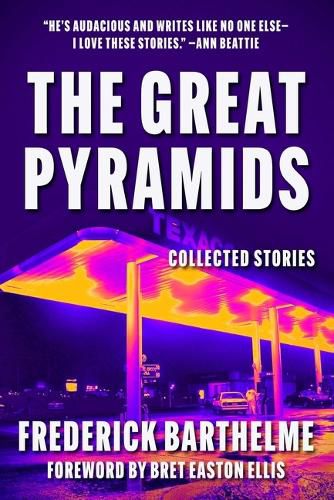Readings Newsletter
Become a Readings Member to make your shopping experience even easier.
Sign in or sign up for free!
You’re not far away from qualifying for FREE standard shipping within Australia
You’ve qualified for FREE standard shipping within Australia
The cart is loading…






Frederick Barthelme's fiction portrays the immensity of feeling that saturates the uneventful details of ordinary life. From parking lots to grocery stores, and swimming pools to morning traffic, the inner landscape of Barthelme's characters is one of underlying tension arising from the seemingly mundane. Meaning breaks down and is doubled, and becomes a representation of the small in-between spaces--lyrical, mysterious, ordinary--within the routines of daily life. Starting out his career as a musician in a psychedelic noise band, and later as a conceptual artist, Barthelme's breakthrough short fiction soon became a staple of the New Yorker--expanding to eleven novels, short story collections, screenplays, and a memoir. The Great Pyramids includes early classics such as "Cut Glass," "Aluminum House," and "Shopgirls," as well as later works such as "Retreat" and "Socorro" and previously unpublished stories.
The overall sense of angst and isolation in Barthelme's work--and the urgent need to connect with family, friends, lovers, and strangers--has become even more relevant to our time. This career-spanning collection reflects Barthelme's compassionate, wry, beguilingly deep observations of cultural estrangement and floating dread--and his sardonic, sometimes absurdist, commonplace-bleak, yet compassionate understanding of how we relate to one another in a world that subverts relationships yet dares us to try. As Bret Easton Ellis conveys in his foreword, Barthelme showed us a new way to look at the world, and helped redefine the short story: a "signal" heard by writers--and readers--of younger generations.
$9.00 standard shipping within Australia
FREE standard shipping within Australia for orders over $100.00
Express & International shipping calculated at checkout
Stock availability can be subject to change without notice. We recommend calling the shop or contacting our online team to check availability of low stock items. Please see our Shopping Online page for more details.
Frederick Barthelme's fiction portrays the immensity of feeling that saturates the uneventful details of ordinary life. From parking lots to grocery stores, and swimming pools to morning traffic, the inner landscape of Barthelme's characters is one of underlying tension arising from the seemingly mundane. Meaning breaks down and is doubled, and becomes a representation of the small in-between spaces--lyrical, mysterious, ordinary--within the routines of daily life. Starting out his career as a musician in a psychedelic noise band, and later as a conceptual artist, Barthelme's breakthrough short fiction soon became a staple of the New Yorker--expanding to eleven novels, short story collections, screenplays, and a memoir. The Great Pyramids includes early classics such as "Cut Glass," "Aluminum House," and "Shopgirls," as well as later works such as "Retreat" and "Socorro" and previously unpublished stories.
The overall sense of angst and isolation in Barthelme's work--and the urgent need to connect with family, friends, lovers, and strangers--has become even more relevant to our time. This career-spanning collection reflects Barthelme's compassionate, wry, beguilingly deep observations of cultural estrangement and floating dread--and his sardonic, sometimes absurdist, commonplace-bleak, yet compassionate understanding of how we relate to one another in a world that subverts relationships yet dares us to try. As Bret Easton Ellis conveys in his foreword, Barthelme showed us a new way to look at the world, and helped redefine the short story: a "signal" heard by writers--and readers--of younger generations.